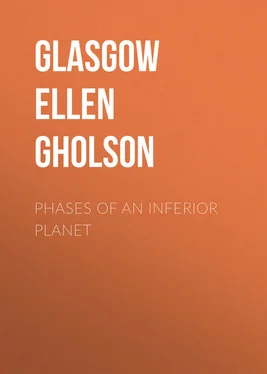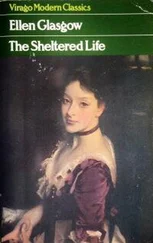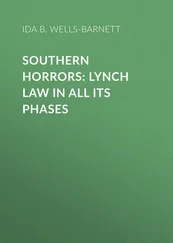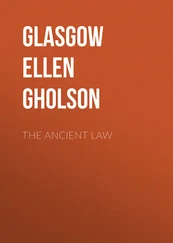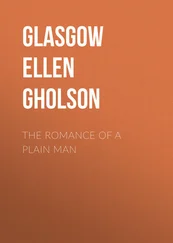Ellen Glasgow - Phases of an Inferior Planet
Здесь есть возможность читать онлайн «Ellen Glasgow - Phases of an Inferior Planet» — ознакомительный отрывок электронной книги совершенно бесплатно, а после прочтения отрывка купить полную версию. В некоторых случаях можно слушать аудио, скачать через торрент в формате fb2 и присутствует краткое содержание. Жанр: foreign_antique, foreign_prose, foreign_sf, на английском языке. Описание произведения, (предисловие) а так же отзывы посетителей доступны на портале библиотеки ЛибКат.
- Название:Phases of an Inferior Planet
- Автор:
- Жанр:
- Год:неизвестен
- ISBN:нет данных
- Рейтинг книги:4 / 5. Голосов: 1
-
Избранное:Добавить в избранное
- Отзывы:
-
Ваша оценка:
- 80
- 1
- 2
- 3
- 4
- 5
Phases of an Inferior Planet: краткое содержание, описание и аннотация
Предлагаем к чтению аннотацию, описание, краткое содержание или предисловие (зависит от того, что написал сам автор книги «Phases of an Inferior Planet»). Если вы не нашли необходимую информацию о книге — напишите в комментариях, мы постараемся отыскать её.
Phases of an Inferior Planet — читать онлайн ознакомительный отрывок
Ниже представлен текст книги, разбитый по страницам. Система сохранения места последней прочитанной страницы, позволяет с удобством читать онлайн бесплатно книгу «Phases of an Inferior Planet», без необходимости каждый раз заново искать на чём Вы остановились. Поставьте закладку, и сможете в любой момент перейти на страницу, на которой закончили чтение.
Интервал:
Закладка:
Ellen Glasgow
Phases of an Inferior Planet
Phase First
"Some turned to folly and the sweet works of the flesh."
– Hymn to Zeus.CHAPTER I
Along Broadway at six o'clock a throng of pedestrians was stepping northward. A grayish day was settling into a gray evening, and a negative lack of color and elasticity had matured into a positive condition of atmospheric flatness. The air exhaled a limp and insipid moisture, like that given forth by a sponge newly steeped in an anæsthetic. Upon the sombre fretwork of leafless trees, bare against red-brick buildings, drops of water hung trembling, though as yet there had been no rainfall, and the straggling tufts of grass in the city parks drooped earthward like the damp and uncurled fringe of a woman's hair.
Spanning the remote west as a rainbow stretched an unfulfilled pledge of better things, for beyond the smoke-begrimed battalion of tenement chimney-pots a faint streak of mauve defined the line of the horizon – an ineffectual and transparent sheet of rose-tinted vapor, through which the indomitable neutrality of background was revealed. The city swam in a sea of mist, and the electric lights, coming slowly into being, must have seemed to a far-off observer a galaxy of wandering stars that had burst the woof of heaven and fallen from their allotted spheres to be caught like blossoms in the white obscurity of fog. Above them their deserted habitation frowned blackly down with closed doors and impenetrable walls.
The effect of the immortal transformation of day into night was singularly elusive. It had come so stealthily that the fleet-footed hours seemed to have tripped one another in the fever of the race, the monotonous grayness of their garments shrouding, as they fluttered past, the form of each sprightly elf.
Along Broadway the throng moved hurriedly. At a distance indescribably homogeneous, as it passed the lighted windows of shops it was seen to be composed of individual atoms, and their outlines were relieved against the garish interiors like a panorama of automatic silhouettes. Then, as they neared a crossing, a flood of radiant electricity, revealing minute details of face and figure, the atoms were revivified from automatic into animal existence.
With an inhuman disregard of caste and custom, the aberrant shadows of the passers-by met and mingled one into another. A phantasmagoric procession took place upon the sidewalk. The ethereal accompaniment of the physical substance of a Wall Street plutocrat glided sedately after that of a bedizened daughter of the people, whose way, beginning in the glare of the workhouse, was ending in the dusk of the river; a lady of quality, whose very shadow seemed pregnant with the odor of spice and sables, melted before the encroaching presence of a boot-black fresh from the Bowery; a gentleman of fashion gave place to the dull phantom of a woman with burning brows and fingers purple with the stain of many stitches. It was as if each material substance, warm with the lust of the flesh and reeking with a burnt-offering of vanity, was pursued by the inevitable presence of a tragic destiny.
At the corner of Seventeenth Street, a girl in a last season's coat left the crowd and paused before a photographer's window. As she passed from shadow into light the play of her limbs was suggested by the close folds of her shabby skirt. She had the light and steadfast gait of one to whom exercise is as essential as food, and more easily attained.
A man coming from Union Square turned to look at her as she passed.
"That girl is a danseuse ," he said to his companion, "or she ought to be. She walks to music."
"Your induction is false," retorted the other. "She happens to be – "
And they passed on.
As the girl paused before the lighted window the outlines of head and shoulders were accentuated, while the rest of her body remained in obscurity. Her head was shapely and well poised. Beneath the small toque of black velvet, an aureole of dry brown hair framed her sensitive profile like a setting of old mahogany. Even in the half-light silhouette it could be noticed that eyes, hair, and complexion differed in tone rather than in color. Her sallow skin blended in peculiar harmony with the gray-green of her eyes and the brown of her hair. Her face was long, with irregular features and straight brows. The bones of cheek and chin were rendered sharper by extreme thinness.
A new photograph of Alvary was displayed, and a small group had assembled about the window.
The girl looked at it for a moment; then, as some one in the crowd jostled against her, she turned with an exclamation of annoyance and entered the shop. Hesitating an instant, she drew a worn purse from her pocket, looked into it, gave a decisive little shrug, and approached the counter.
The shop-girl came up, and, recognizing her, nodded.
"Music?" she inquired, glancing at the leather roll which the other carried.
The girl shook her head slowly.
"No," she replied, "I want a photograph of Alvary – as Lohengrin. Oh, the Swan Song – "
A man who was sorting a pile of music in the rear of the shop came forward smiling. He was small and dark and foreign.
"Ah, mademoiselle," he said, "it ees a plaisir for w'ich I live, ees ze Elsa of your."
The girl smiled in return. In the clear light the glint of green in her eyes deepened.
"No," she replied, "this is Elsa." She pointed to a photograph in the case. "This is the only Elsa. I should not dare."
He bowed deprecatingly.
"Zat ees ontil you come," he said. "I live for ze day w'en we sing togezzer, you an' I. I live to sing wiss you in ze grand opera."
"Ah, monsieur," lamented the girl, regretfully, "one cannot live forever. The Lord has allotted a term."
She took her change, nodded gayly, and departed.
In the street she passed unheeded. She was as ignored by the crowd around her as the colorless shadow at her side. Upon a massive woman in a feather boa a dozen men gazed with evident desire, and after the sables enveloping the lady of quality the eyes of the boot-black yearned. But the girl moved among them unnoticed – she was insignificant and easily overlooked.
A violet falling upon the pavement from the breast of a woman in front of her, the girl lifted her skirt, and, to avoid crushing it, made a slight divergence from her path. Then impulsively she turned to rescue it from the cold sidewalk, but in so doing she stumbled against a man whose heel had been its Juggernaut. A tiny blot of purple marked the scene of its destruction.
Over the girl's face a shadow fell; she glanced up and caught the courteous smile of an acquaintance, and the shadow was lifted. But before her upward glance tended earthward it rested upon an overdriven horse standing in the gutter, and the shadow that returned had gathered to itself the force of a rain-cloud.
An impressionable and emotional temperament cast its light and darkness upon her features, as the shifting clouds cast their varying shades upon an evening landscape. With such a face, her moods must be as evanescent as the colors of a kaleidoscope.
As she neared an electric light she slipped the photograph she carried from its envelope, and surveyed it with warming eyes. She spoke in a soft whisper —
"I shall never sing Elsa – never – never! Lehmann is Elsa. But what does it matter? By the time I reach grand opera I shall have dinners – real dinners – with napkins the size of a sheet and vegetables of curious kinds. Then I'll grow fat and become famous. I may even sing Isolde."
She broke into a regretful little sigh. "And Alvary will be too old to be my Tristan."
At the corner of Twenty-third Street she took a cross-town car. It was crowded, and, with half-suppressed disgust, she rested the tips of her fingers upon a leather strap. The gloves covering the fingers were worn and badly mended, but the touch was delicate.
Читать дальшеИнтервал:
Закладка:
Похожие книги на «Phases of an Inferior Planet»
Представляем Вашему вниманию похожие книги на «Phases of an Inferior Planet» списком для выбора. Мы отобрали схожую по названию и смыслу литературу в надежде предоставить читателям больше вариантов отыскать новые, интересные, ещё непрочитанные произведения.
Обсуждение, отзывы о книге «Phases of an Inferior Planet» и просто собственные мнения читателей. Оставьте ваши комментарии, напишите, что Вы думаете о произведении, его смысле или главных героях. Укажите что конкретно понравилось, а что нет, и почему Вы так считаете.
